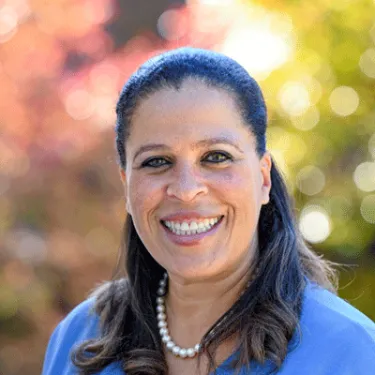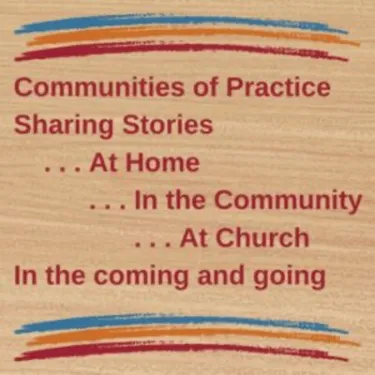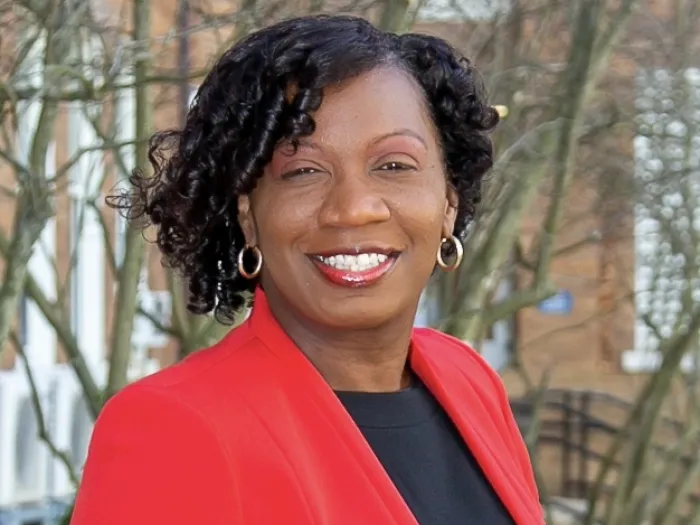Listening to youth lead us in hard conversations
New season of PC(USA)’s ‘Around the Table’ podcast launches


Hard conversations that young people yearn to have with their church, communities or caregivers was the topic of the first episode of the second season of “Around the Table,” a podcast made possible by the Around the Table initiative in the Presbyterian Church (U.S.A.). Around the Table is a Lilly Endowment Inc.-funded initiative in the PC(USA) that engages faith communities, parents and caregivers in innovative practices of sharing stories that grow intergenerational communities to support household faith formation.
The episode opened by listening to young people answer the question, “If you could talk about anything around the table, what would it be?”
“I would talk about war because I want to know what’s going on in the world,” said Delaney, age 9.
“I would talk about homelessness and how to solve it,” said Max, age 13.
“I would talk about politics,” said Alexis, age 11. “I think it is important for everyone to have a say in how we run our country.” She then thanked the audience for listening to their voices.

Podcast hosts the Rev. Cliff Haddox and the Rev. Michelle Thomas-Bush then introduced their special guest, Imana Sherrill, head of Trinity Episcopal School in Charlotte, North Carolina. Haddox described Trinity as a “kindergarten through eighth grade independent school in the heart of the city, known for doing cutting-edge justice work with young people.” Sherrill said the school seeks to build advocacy and resiliency through helping children to speak about things they are passionate about, starting in kindergarten.
“Our kids are looking to us to provide safety, honesty and security for them,” said Sherrill. “We are their first people in the world, and so they’re looking at us when these life crises happen.” Sherrill advises adults in whom kids place their trust to validate their feelings, resist minimizing and sugarcoating, and respond directly with age-appropriate responses. “If they are asking, they are ready,” said Sherrill. “Who else would you want your kids to learn from other than a caring, trusting adult?”
Sherrill believes that fostering curiosity and allowing kids to “be able to think through some complex issues, feelings and fears” need not oppose an adult’s natural reflex to protect and preserve a sense of childhood innocence. Allowing kids to unpack their emotions and concerns can also open up conversations about what adults in their lives are doing to keep them and their communities safe. Sherrill shared some examples of how her school has responded to various school shootings and how they prepare their kids through more generalized “lockdown drills” that cover a broad range of emergency situations.
In the role of school administrator, like that of a pastor, Sherrill has had a lot of difficult conversations. For self-care, she keeps a jar of colorful prayers on her desk with a prompt that reads, “Read me when … you are happy, thankful, anxious or sad.” Trinity Episcopal values diversity of race, gender, sexuality, socioeconomic status and religion, and tries to reflect what the city of Charlotte looks like. Sherrill says they build compassion and understanding through a service-learning program that spans each grade.
“We live according to our foundational questions: ‘Who am I? Who are you? Who are we together and what are we called to do?’” said Sherrill, who explained that these questions guide how a child thinks about how to care in the way Jesus cared and to put words into action. “Love is a verb,” she said.

Thomas-Bush asked Sherrill for practical tips for caregivers in order to make a space for difficult conversations and to navigate them. “Create a space for them to express their feelings. Create that environment, be it at the dinner table or in the car, that safe space where they can bring up a conversation whenever they want to, and always acknowledge those emotions and feelings that they’re feeling,” said Sherrill. She also advised adults not to be afraid of feeling vulnerable. “It’s OK if they know that I’m hurting, too, but this is hard for me, too, and let’s talk about it together,” said Sherrill, who explained that modeling this can give kids permission to take their own time processing, too.
According to Sherrill, the purpose of hard conversations is not a foolproof answer, an immediate solution or impenetrable security but “to help them develop the confidence to face hard times.”
Upcoming episodes of the “Around the Table” podcast include:
- Oct. 18: Nicole Doyley, “Hard Conversations: Talking About Mixed-Race Households
- Oct. 25: “Election Conversation”
- Nov. 1: The Rev. Dr. Rodger Nishioka, “Hard Conversations and Faith”
- Nov. 8: Dan Davis, “Hard Conversations About Raising Young Men”
- Nov. 22: Tandra Rutledge, “Hard Conversations About Suicide Awareness."
For more information about the Around the Table initiative, contact neema.cyrus-franklin@pcusa.org.
You may freely reuse and distribute this article in its entirety for non-commercial purposes in any medium. Please include author attribution, photography credits, and a link to the original article. This work is licensed under a Creative Commons Attribution-NonCommercial-NoDeratives 4.0 International License.




